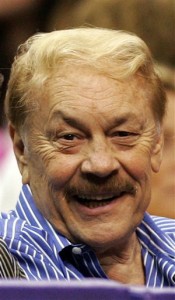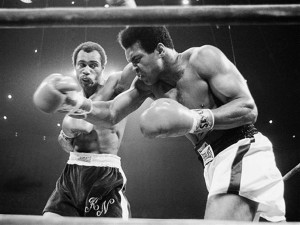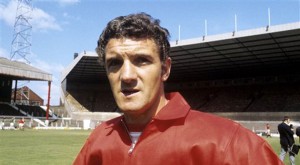Famous sporting deaths of 2013
PARIS— Famous sportspeople who died in 2013:
ATHLETICS
Samson Kimombwa
First Kenyan indeed African to break the 10,000 meters world record died aged 57 in January of cardiac arrest caused by acute hemorrhagic pancreatitis leaving behind a widow and 10 children. The high school teacher, who was a US college star athlete, broke the record in Helsinki, Finland in June 1977, but it was to last only a year before it was bettered by compatriot Henry Rono.
Pietro Mennea
Italy’s 1980 Olympic 200 meters champion and long-time world record holder died on March 21 aged 60 of an as yet unknown incurable disease. Known as the “Arrow of the South” and the then world recordholder — it would last nearly two decades — he edged out 100 meters Olympic champion Allan Wells in the dying strides of the 200m final in Moscow, a Games boycotted by the United States over the Soviet invasion of Afghanistan. Competed in a staggering five Olympics though he later confessed he had used Human Growth Hormone (HGH) which then was not illegal. Paying tribute, Livio Berruti – the Olympic 200m gold winner at the 1960 Games in Rome – said: “He epitomized resistance, tenacity and suffering.”
Alain Mimoun
France’s 1956 Olympic marathon champion died aged 92 on June 27 just a month after his wife Germaine passed away. Born Ali Mimoun Ould Kacha in Algeria it was thanks to his stubbornness in World War II that he even had a running career. Fighting for the Free French Forces he was badly wounded in his left leg by German shelling during the fight for Monte Cassino in 1944 and an American surgeon recommended it be amputated but showing the obstinacy that he was to display in his career he refused to permit him to. Eventually a French surgeon saved his leg and aside from climaxing his career with the gold in Melbourne in sweltering conditions, in what was his first attempt at the distance, prior to that he also won three Olympic silver medals at 5,000m and 10,000m in the 1948 and 1952 Games behind the legendary Czechoslovak Emil Zatopek.
BASEBALL
Stan Musial
‘Stan the Man’ one of baseball’s greatest hitters and a St. Louis Cardinals icon, died on January 19 aged 92. The father of four played his entire 22-year Major League Baseball career with the Cardinals. He was a 24-time All-Star and a first-ballot Hall of Fame selection in 1969. Musial won seven National League batting titles, was a three-time Most Valuable Player and helped St. Louis win three World Series titles in the 1940s. Musial was the first $100,000 player, had a ready smile and a knack for playing the harmonica and would pay unannounced visits to boost the morale of sick children in hospitals when the team was on the road.
BASKETBALL
Sergei Belov
Member of the Soviet Union’s 1972 Olympic gold medal-winning basketball team died on October 3 aged 69. Belov, who was widely considered one of the best non-American players of all time, scored 20 points in the epic Olympic final in Munich in 1972 at the height of the Cold War as the Soviets overcame the United States 51-50. He also won two world championship titles, in 1967 and 1974, and four European titles (1967, 1969, 1971 and 1979.)
Jerry Buss
Los Angeles Lakers owner, top class poker player and philanthropist, who transformed the team, when he bought them in 1979 on the back of a successful real estate business, into the glamour franchise of a revitalized NBA, died on February 18 aged 80 of cancer. Buss, whose son Jim and daughter Jeanie retain control of the franchise, made the Lakers one of the biggest draws in Los Angeles with a combination of shrewd personnel moves on and off the court and a feel for show business glamour. The Lakers have the highest payroll in the NBA at $100 million, but they were valued by Forbes magazine as being worth $1 billion — second in the NBA only to the New York Knicks. The Lakers — the first NBA team to have a dance squad, the Laker Girls — won 10 NBA titles a record under the same owner.
BOXING
Ken Norton
Former boxing champion nicknamed the ‘Black Hercules’ and considered one of the greatest heavyweights of his era, died on September 18 of a heart attack aged 70. Norton, who suffered a stroke in 2012, was best known for beating Muhammad Ali in 1973, breaking Ali’s jaw in the process and ended his brilliant career with a record of 42 wins, seven losses, one draw and 33 knockouts. “They called us handsome. Muhammad they called pretty. But the fairest of them all Ken Norton,” said fellow heavyweight legend George Foreman in a tribute. ‘Father of the Year in 1977 one of his sons, Ken Jr. played in the NFL for the Dallas Cowboys and San Francisco 49ers winning three successive Super Bowls (1992-94 the first two with the Cowboys). Norton Senior went on to appear in 20 films but withdrew from blockbuster ‘Rocky’ where he was due to play Apollo Creed. Humble throughout as exemplified by this quote in his biography: “Of all the titles that I’ve been privileged to have, the title of ‘dad’ has always been the best.”
Tommy Morrison
Former world heavyweight boxing champion who was diagnosed with the HIV virus that causes AIDS in 1996 died on September 1 aged 44. Was one of a long line of ‘great white hopes’ in the heavyweight division in the 1980’s and 90’s but rarely threatened to fulfil that save when he won the WBO world title on points against 44-year-old George Foreman in 1993 only to lose it in his first title defense. Son of a native Indian Morrison claimed to be the great nephew of Hollywood legend John Wayne and went by the nickname of ‘Duke’ as a result. Had numerous run-ins with the law and served time.
Jacob ‘Baby Jake’ Matlala
Two-time world champion died aged 51 on December 7. Shortest ever world champion at 4ft 10inches (1.47meters) was WBO flyweight champion from May 1993-February 1995 and Light flyweight champion from November 1995 to 1997. Apparently was the favorite boxer of former South African president Nelson Mandela, who died two days before him.
CYCLING
Philippe Gaumont
Talented French cyclist who epitomized the culture of doping in the sport in the 1990’s and early part of this century died after lapsing into a coma following a massive heart attack aged 40 on May 17. Olympic bronze medalist in the 2000 Games in team time-trial and winner of prestigious Ghent-Wevelgem one day race he retired from the sport in 2004 after confessing to habitual doping. Wrote a warts and all book ‘Prisoner of doping’ divulging the tricks of the dopers and remarked: “I doped so I could survive…but I lost a lot in the process.” On his enforced retirement he ran first a cafe in Amiens and then became manager of a brasserie with 33 employees in the northern city of Lens when the Louvre opened a branch of their museum there. Extrovert and bon viveur he commented shortly before his death: “I always lived life to excess.”
FOOTBALL
Bill Foulkes
Former Manchester United defender and a survivor of the 1958 Munich air disaster which killed 23 people including several of his teammates, died aged 81 on November 25. A no-nonsense centerback — only capped once by England — made his United debut in 1952 and played 688 times for the club — a figure surpassed by only Ryan Giggs, Bobby Charlton and Paul Scholes. He was a coalminer originally and continued working in the mines even when he became a regular first choice under Matt Busby. Went on to be part of the United team that won the club’s first European Cup in 1968. “He was as hard as nails, as tough as teak. I was always glad I didn’t have to play against him,” remarked former team-mate Charlton on hearing of his death.
Gilmar and Nilton Santos
Both members of the outstanding Brazil side that won the 1958 World Cup and retained the trophy in 1962 died aged 83 and 88 on August 25 and November 23 respectively. Gilmar was the goalkeeper who ended his career with 94 caps while Nilton, capped 75 times, was nicknamed ‘the Encyclopaedia’ for his deep knowledge of tactics. He was also named in FIFA’s team of the 20th century.
Brian Greenhoff
Former Manchester United and England defender died suddenly aged 60 on May 22. Capped 18 times by England he formed a reliable central defensive partnership with Martin Buchan for United under the charismatic managership of Tommy Docherty which saw them win the 1977 FA Cup final beating Liverpool 2-1 — his brother Jimmy was also part of the side — having lost the 1976 one in a shock defeat to Southampton. Went on to play for Leeds and Rochdale where he was player-coach but fell out with Jimmy after the latter was dismissed as manager. “It was a little family argument. It’s the only one we ever had,” commented Jimmy, though, bad enough for them not to speak for 15 years.
Con Martin
Irishman who played in several positions and nicknamed the ‘yellow canary’ whose appearances for both the Republic of Ireland and Northern Ireland prompted a rule change by FIFA died on February 24 aged 89. After Martin’s last appearance for Northern Ireland, his sixth in all while he played 30 times for the Republic, in a Home International against Wales but also counting towards 1950 World Cup qualification, FIFA ruled that turning out for the two sides could not be repeated. His Gaelic football career had also come to a controversial end in 1941. When it was discovered by the Gaelic football authorities he was also playing football he was banned as soccer was considered a garrison sport – one that had its origins in former colonial power England and been imposed on their then-Irish subjects.
Bruno Metsu
French coach best known for leading Senegal into the quarter-finals of the 2002 World Cup died of cancer aged 59 on October 14. Instantly recognizable on the touchline with his dapper suits and long hair, Metsu caused a sensation at the 2002 World Cup when Senegal defeated reigning champions France in the opening match. Just months ahead of the World Cup, Metsu also guided Senegal to their only appearance in the final of the 2002 Africa Cup of Nations where they were beaten on penalties by Cameroon. “An important personality from French football has left us. He gave the impression of a man able to convince others that French football had values. He was an example to follow in his convictions and the missions he undertook,” said French Football Federation (FFF) president Noel Le Graet.
Ilya Tsymbalar
Highly-gifted Russian international midfielder died of a suspected heart attack aged 44 on December 28. Tsymbalar was one of the stars of a glorious Spartak Moscow squad that won seven titles in the 1990s and was renowned for its skillful passing reminiscent of Lionel Messi’s present Barcelona side. Unlike several of his clubmates like Valery Karpin he never made the move abroad. Capped 28 times by Russia — scoring four goals — he appeared at the 1992 World Cup and Euro ’96. “Tsymbalar had a reputation as the most talented player in contemporary Russian football history,” the state daily Rossiyskaya Gazeta wrote on its website.
Bert Trautmann
Manchester City goalkeeper who played on in the 1956 FA Cup final despite having fractured his neck, died on July 19 aged 89. A decorated veteran of the Eastern Front in World War II, who was later captured having served in Normandy following D-Day, Trautmann was held as a prisoner-of-war until 1948. Trautmann wrote himself into English football folklore after being injured diving at the feet of Birmingham City striker Peter Murphy with 17 minutes left of the FA Cup final — he said the impact felt like a ‘plane crash’ — which resulted in five dislocated vertebrae, one fractured in two, which almost cost him his life. He played on and City won 3-1. “He came to England as a soldier, and thus an enemy, but was later a celebrated hero in the country,” commented German federation president Wolfgang Niersbach.
FORMULA ONE
Maria di Villota
Spanish former Formula 1 test driver died from natural causes aged 33 on October 11 in Seville. The daughter of former Formula 1 driver Emilio De Villota, she was the first Spanish female to enter the sport when she joined the Marussia team in 2012 as a test driver. However, just four months later De Villota suffered severe injuries, including the loss of her right eye in a crash while testing at Duxford Airfield in Cambridgeshire, England. Admired for her courage on the day she died she had been due to take part in a conference organized by the “What Really Matters” foundation promoting human values and was due to launch her book titled “Life is a gift” in Madrid a few days later.
GOLF
Ken Venturi
1964 US Open champion and runner-up in the 1956 Masters who despite having a severe stammer enjoyed a highly successful broadcasting career for 35 years on US television died on May 17 aged 82. Venturi, who prided himself in having Frank Sinatra as his best friend, overcame severe dehydration in sweltering temperatures, at Congressional Country Club just outside Washington, to claim his only major title. “Ken Venturi’s victory in the 1964 US Open remains one of the greatest moments in the championship’s 112-year history,” US Golf Association executive director Mike Davis said.
TENNIS
Jelena Gencic
Serbian tennis coach who unearthed the talent of Novak Djokovic died aged 77 on June 1. She nurtured Djokovic’s talent when he was six years old and with the agreement of his parents trained him for five years before he left for further coaching in Germany. Her eye for talent had already been finely-honed as she also coached fellow Grand Slam champions Monica Seles and Croatia’s Goran Ivanisevic. “Jelena was like my second mother and we were very close. She gave so much knowledge and I feel I have a responsibility to carry on that work,” said Djokovic.
Peter Graf
Coach and manager of daughter Steffi died aged 75 of cancer on November 30. Disciplinarian — she would apparently feel the back of his hand if he judged her practice sessions below par — and thus acquired nickname of ‘Papa Merciless’ but his methods produced results as his daughter went on to dominate the women’s game and win 22 Grand Slam events. His claim to an American magazine ‘I think we can afford the taxes,’ referring to why they stayed in Germany came back to haunt him as he was sentenced to three years and nine months in jail for tax fraud in 1997. Fairly chaotic private life saw him divorce Steffi’s mother and marry his daughter’s former babysitter in 1999.




